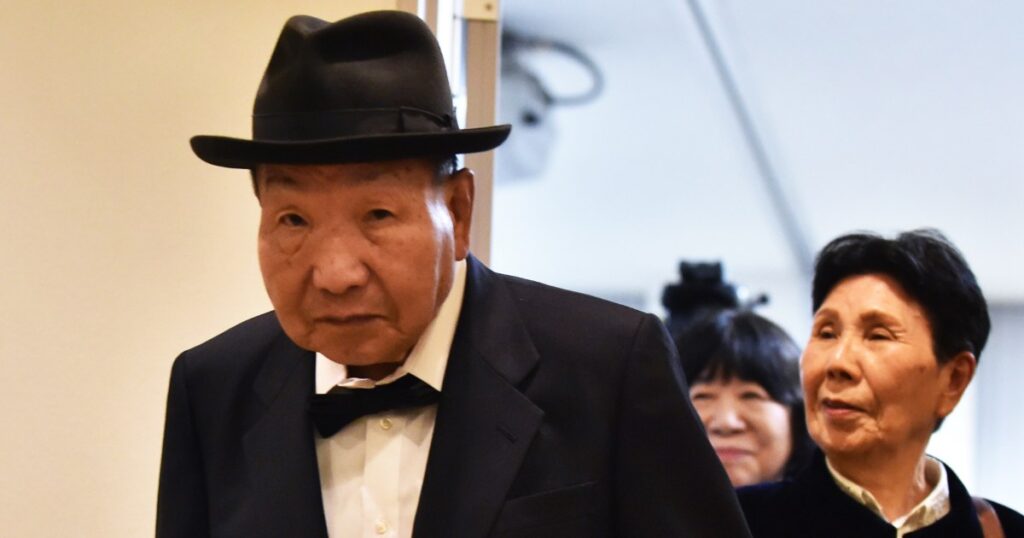TOKYO — A Japanese man said to have served the world’s longest death sentence was acquitted Thursday in a retrial of the 1966 murders of four people, ending his family’s journey to seek justice for a wrongful conviction.
Hakamada Iwao, 88, had been on death row for 45 years before a court ordered his release and a retrial in 2014 amid ongoing doubts about the evidence on which his conviction was based.
The Shizuoka District Court on Thursday acquitted the former boxer. Prosecutors have 10 days to appeal.
Mr. Hakamada’s 91-year-old sister, Hideko Hakamada, said at a press conference after the verdict that she was “very moved and happy” and “couldn’t stop crying.”
“It was a very long trial, but thank you all so much,” she added. “We won a not guilty verdict! It sounded so holy when the judge said, ‘The defendant is innocent.'”
Her brother was convicted of killing his company manager and three members of his family, then setting fire to their home in the central region.
He briefly admitted to the murders, then retracted his confession during his trial and pleaded innocent, but was sentenced to death in 1968 and the sentence was upheld by Japan’s Supreme Court in 1980.
He has spent 48 years in prison, more than 45 of which on death row, making him the longest-serving death row inmate in the world, according to human rights group Amnesty International.
Norimichi Kumamoto, one of the three judges who sentenced Hakamada to death at the Shizuoka District Court, requested a retrial at the Supreme Court in 2008 but was turned down.
But he was released from prison in 2014 after a court ordered a retrial based on evidence showing his conviction was based on fabricated charges by investigators, but the conviction was not waived.
Since his release, Hakamada has been living with his girlfriend Hideko, who has fought for decades to clear his name.
Hakamada’s legal team had argued that DNA tests on bloodstained clothing purportedly belonging to their client showed that the blood did not belong to them.
After the trial, chief lawyer Hideyo Ogawa told reporters, “I am grateful that so many people are sharing this happy moment today.”
He added that he was “stunned” by the “truly groundbreaking” acquittal.
Amnesty International hailed the acquittal as a “watershed moment for justice” and called on Japan to abolish the death penalty.
“After almost half a century of wrongful imprisonment and a further decade of awaiting retrial, this sentence is a significant recognition of the grave injustice he has endured for most of his life,” Amnesty said.
“This marks the end of an inspiring fight to restore his honor,” the statement added.



